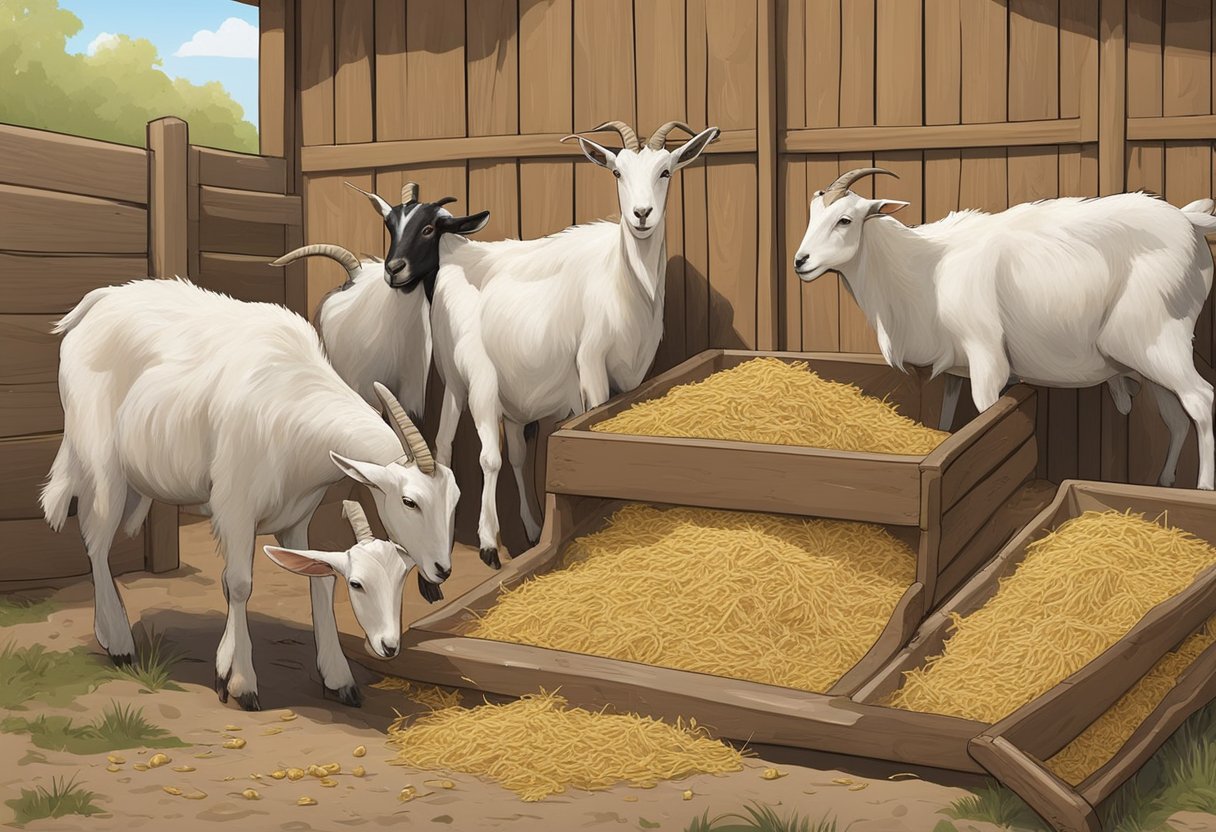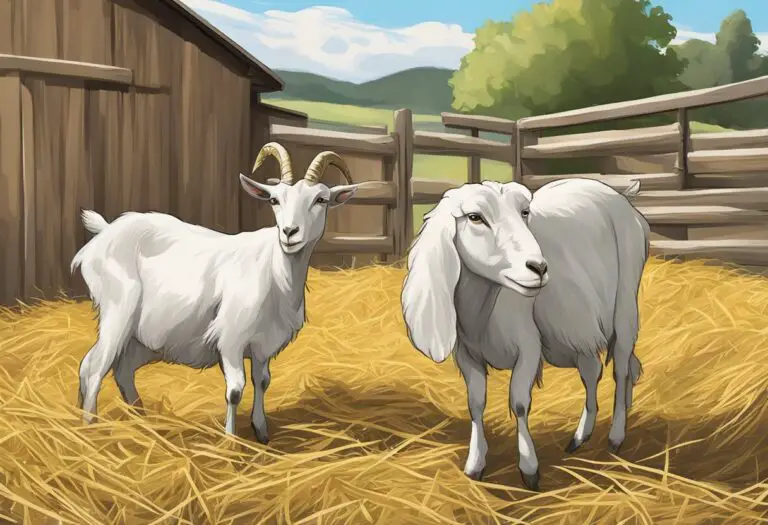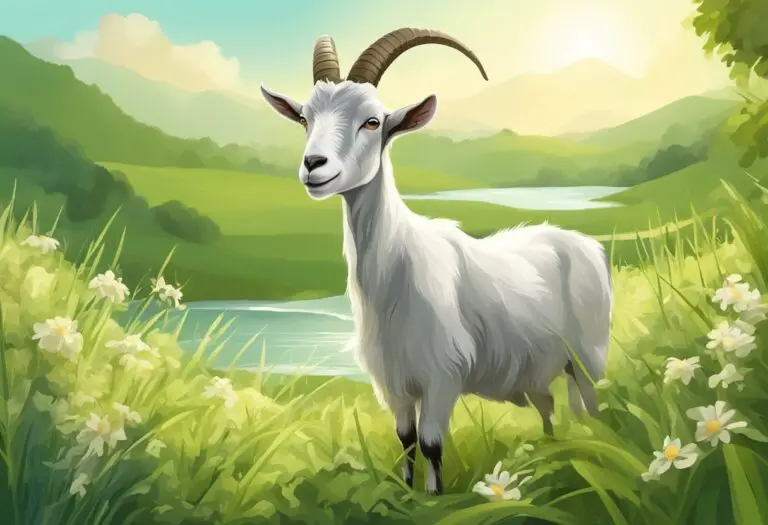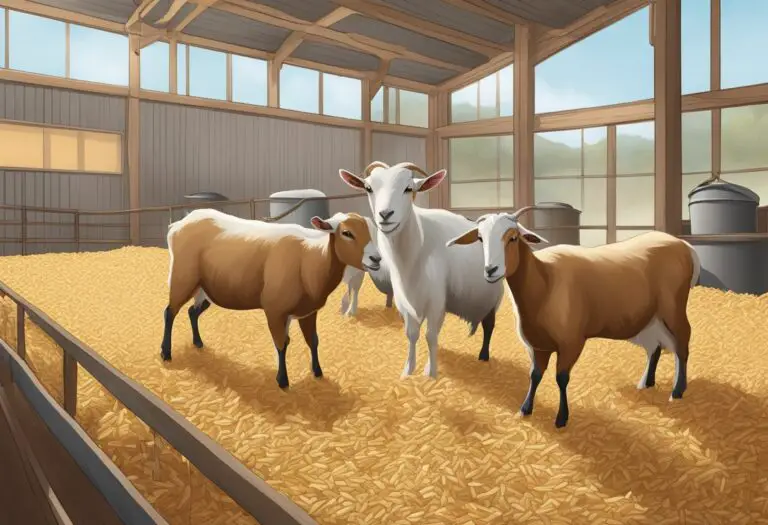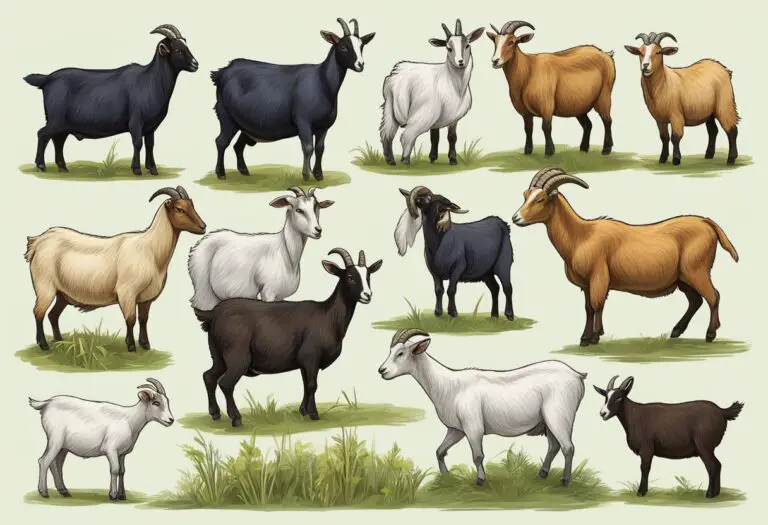How to Properly Feed Goats: A Comprehensive Guide
Goats are one of the most popular farm animals, and they are raised for their milk, meat, and fiber. Feeding goats properly is essential to maintain their health and productivity. Goats have a unique digestive system, which requires a balanced and nutritious diet to ensure their well-being.
When it comes to feeding goats, it’s important to understand their dietary needs. Goats are ruminants, which means they have a four-chambered stomach that allows them to digest roughage and fiber. They require a diet that is high in fiber, low in carbohydrates, and rich in vitamins and minerals. Feeding goats a balanced diet not only keeps them healthy but also improves the quality of their milk and meat.
In this article, we will discuss the basics of feeding goats properly. From understanding their dietary needs to selecting the right type of feed, we will cover everything you need to know to keep your goats healthy and productive. Whether you are a new goat owner or a seasoned farmer, this article will provide you with the knowledge and tools you need to feed your goats properly.
Understanding Goat Nutrition

Goats have unique nutritional needs that must be met in order to maintain their health and productivity. Understanding the essential nutrients for goats, the role of roughage, and the importance of supplements and minerals is crucial for proper goat nutrition.
Essential Nutrients for Goats
Goats require a balanced diet that includes six essential nutrients: carbohydrates, protein, fats, vitamins, minerals, and water. Carbohydrates provide energy, protein is essential for growth and repair, fats provide energy and insulation, vitamins support metabolism and immune function, minerals are necessary for bone and muscle health, and water is essential for hydration and digestion.
Goats have different nutritional requirements depending on their age, weight, and activity level. For example, lactating does require more protein and energy than dry does. It is important to consult with a veterinarian or animal nutritionist to determine the appropriate feed and nutrient requirements for your goats.
The Role of Roughage
Roughage, also known as fiber, is an important component of a goat’s diet. Roughage includes hay, grass, and other plant materials. Roughage provides bulk to the diet, which helps to maintain proper digestion and prevent digestive issues such as bloat.
Goats require a diet that is high in roughage. The amount of roughage required varies depending on the goat’s age and activity level. As a general rule, goats should consume 1 to 2 pounds of roughage per day per 100 pounds of body weight.
Supplements and Minerals
Supplements and minerals are an important part of a goat’s diet. Supplements can include grains, seeds, and other feed sources that provide additional nutrients. Minerals are essential for proper growth, reproduction, and overall health.
Common minerals that goats require include calcium, phosphorus, magnesium, and sodium. It is important to provide a balanced mineral supplement to ensure that goats receive all the necessary minerals in the correct amounts.
In conclusion, understanding goat nutrition is essential for maintaining the health and productivity of your goats. Providing a balanced diet that includes essential nutrients, roughage, and supplements and minerals is crucial for optimal goat nutrition.
Feeding Practices

Feeding Schedule
Establishing a consistent feeding schedule is crucial for maintaining the health and well-being of goats. It is recommended to feed goats twice a day, with the first feeding in the morning and the second feeding in the evening. This helps to prevent overeating and digestive issues. Additionally, it is important to provide fresh water at all times.
Portion Control
Goats have a tendency to overeat, which can lead to obesity and health problems. It is important to measure their food portions and ensure they are not consuming too much. A general rule of thumb is to feed 2-4% of the goat’s body weight in hay per day. It is also recommended to provide a balanced diet that includes hay, grains, and minerals.
Adapting to Life Stages
Goats have different nutritional needs at different life stages. For example, pregnant or lactating goats require more nutrients and calories to support their developing offspring. It is important to adjust their diet accordingly. Additionally, older goats may require softer or more easily digestible food to prevent dental issues.
Overall, proper feeding practices are essential for the health and well-being of goats. By establishing a consistent feeding schedule, practicing portion control, and adapting to different life stages, goat owners can ensure their animals receive the necessary nutrients for optimal health.
Choosing the Right Feed

Types of Goat Feed
When it comes to feeding goats, there are various types of feeds available in the market. The most common types of goat feed include hay, grain, and supplements. Hay is the primary source of roughage for goats, and it is essential to ensure that it is of high quality. Grain, on the other hand, provides energy and protein to goats, but it should be given in moderation. Supplements, such as minerals and vitamins, are essential for the overall health of goats.
Evaluating Feed Quality
It is crucial to evaluate the quality of the feed before purchasing it. The quality of hay can be determined by its color, smell, and texture. Good quality hay should be green, have a sweet smell, and be free of mold and dust. When it comes to grains, it is essential to ensure that they are fresh and free of contaminants. Supplements should be purchased from reputable suppliers to ensure their quality.
In conclusion, choosing the right feed for goats is crucial for their overall health and well-being. It is essential to provide them with high-quality hay, grain, and supplements, and to evaluate the quality of the feed before purchasing it. By following these guidelines, goat owners can ensure that their goats receive the necessary nutrients for optimal health.
Common Feeding Mistakes to Avoid

Feeding goats is not just about providing them with food, but also ensuring that they get the right amount and type of feed. Unfortunately, there are some common mistakes that goat owners make when feeding their animals. Here are some of the most common feeding mistakes to avoid:
Overfeeding
Overfeeding is a common mistake that goat owners make. Goats have a tendency to eat whatever is in front of them, and if they are given too much food, they will eat it all. This can lead to obesity, which can cause health problems such as joint pain, heart disease, and respiratory problems.
Feeding Improperly Balanced Rations
Feeding improperly balanced rations is another common mistake that goat owners make. Goats require a certain balance of nutrients in their diet in order to stay healthy. Feeding them a diet that is too high in one nutrient and too low in another can lead to health problems such as poor growth, poor milk production, and reproductive problems.
Feeding Low-Quality Feed
Feeding low-quality feed is yet another common mistake that goat owners make. Goats require high-quality feed in order to stay healthy. Feeding them low-quality feed can lead to health problems such as poor growth, poor milk production, and reproductive problems.
Not Providing Enough Water
Finally, not providing enough water is a common mistake that goat owners make. Goats require a lot of water in order to stay healthy. Not providing them with enough water can lead to dehydration, which can cause health problems such as kidney damage and urinary tract infections.
In conclusion, feeding goats properly requires knowledge and attention to detail. By avoiding these common feeding mistakes, goat owners can help ensure that their animals stay healthy and happy.
Health Monitoring and Feed Adjustments

Identifying Nutritional Deficiencies
It is important to monitor the health of your goats regularly to ensure they are receiving the proper nutrition. Signs of nutritional deficiencies can include poor coat quality, weight loss, and decreased milk production. In addition, goats may develop health problems such as anemia, lameness, or reproductive issues if they are not receiving the proper nutrients.
To identify nutritional deficiencies, it is recommended to work with a veterinarian to perform regular health checks. Blood tests can also be done to check for deficiencies in specific nutrients such as copper, selenium, and vitamin E. If a deficiency is identified, adjustments can be made to the goat’s diet to ensure they are receiving the necessary nutrients.
When to Change the Diet
It is important to adjust the goat’s diet based on their changing nutritional needs. For example, pregnant and lactating goats require more nutrients than non-pregnant goats. In addition, goats may require different diets based on their age, breed, and activity level.
To make adjustments to the goat’s diet, it is recommended to work with a veterinarian or a nutritionist who can provide guidance on the appropriate amount and type of feed to provide. It is important to make any changes to the diet gradually to avoid digestive upset.
Regular monitoring of the goat’s health and adjusting their diet as needed can help ensure they are receiving the proper nutrition for optimal health and productivity.
Safety and Storage of Goat Feeds

When it comes to feeding goats, safety and proper storage of feeds are essential. Here are some tips to keep in mind:
Safety
- Store feeds in a dry, cool, and well-ventilated area to prevent mold growth and spoilage.
- Keep feeds away from direct sunlight, moisture, and pests.
- Always wear gloves and a mask when handling feeds to prevent respiratory irritation and skin allergies.
- Avoid feeding moldy or spoiled feeds to goats as they can cause health problems such as diarrhea and digestive issues.
- Keep all feeds, medications, and supplements out of reach of children and pets.
Storage
- Label all feeds with the date of purchase and use them within their expiration date.
- Store different types of feeds separately to prevent cross-contamination and preserve their quality.
- Use airtight containers such as plastic bins or metal cans to store feeds and protect them from pests.
- Do not store feeds on the ground or near chemicals, fertilizers, or other potentially harmful substances.
- Clean and sanitize feeders and waterers regularly to prevent the growth of harmful bacteria.
By following these safety and storage tips, you can ensure that your goats receive high-quality feeds that are safe and nutritious.
Environmental Considerations for Feeding Goats

When it comes to feeding goats, it’s not just about what they eat, but also where and how they eat. Environmental considerations play a crucial role in the health and wellbeing of goats. Here are some factors to keep in mind:
Shelter
Goats need a dry and sheltered area to eat. Exposure to rain, snow, and wind can cause stress and illness. A simple shelter made of wood or metal can provide adequate protection. It’s important to keep the shelter clean and free of debris to prevent the buildup of harmful bacteria.
Grazing Area
Goats need access to a grazing area that is free of toxic plants and chemicals. It’s important to regularly inspect the grazing area and remove any hazardous materials. Providing a variety of plants can help ensure a balanced diet for goats.
Water
Clean and fresh water should always be available to goats. Water should be easily accessible and free of contaminants. It’s important to regularly clean and refill water containers to prevent the buildup of harmful bacteria.
Feeders
Goats need access to feeders that are appropriate for their size and number. Overcrowding can lead to stress and aggression. It’s important to provide enough feeders to prevent competition for food. Feeders should also be cleaned regularly to prevent the buildup of harmful bacteria.
Overall, providing a clean, dry, and safe environment for goats to eat is crucial for their health and wellbeing. By keeping these environmental considerations in mind, goat owners can ensure that their animals are happy and healthy.

